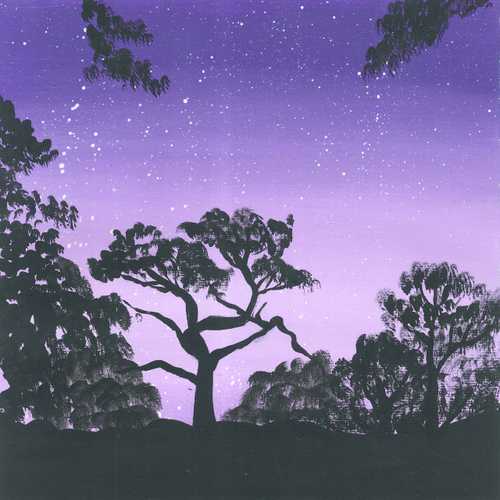
¿Quiubo*, reader? 👋
What does an unsullied rainforest sound like? And can we hear natural sounds without the intrusion of human noise anywhere closer to home? How to describe the sound of clattering bulrushes? Can invasive species be stopped? What does organized crime have to do with waste management…?
Read on to find out!
*A shortened version of ¿Qué hubo? (“What’s up?”), from Colombia’s Pacific coast region.
Soundscape of the week
“[The] Colombian Pacific [Coast] is one of the world’s few remaining areas with no road infrastructure and vast intact rainforest expanses. This was the most remote and inaccessible place I have ever come to record. Reaching the mangroves included an intense four-hour jungle hike and overnight wild camping”…
Against a hissing buzz of insect life that almost sets off a Pavlovian sweat response, various birds and animals vocalize intermittently – including but not limited to squawks, grumbles, chirrups, and guttural bellows. The consistent diversity of this 78-minute soundscape does more to demonstrate the true richness and abundance of life in these environments than statistics ever could.
Articles and essays
✍️ “Writing ‘caw-caw-caw’ instantly evokes a crow […] but how do I adequately describe the sound of a breeze causing the cattails to clatter? […] Or the endless variety of sounds emanating from different parts of a stream running over gravel here, a boulder field there, a sandy bottom over here, or a narrow, ice-covered sluice in the distance, falling onto a carpet of mosses?”
Given your correspondent’s abject failure to satisfactorily describe just five Colombian rainforest sounds, this comment from Dr. Steven Shepard is highly relatable. In ‘Writing Down the Sound’, he provides a guide to the art of describing just such natural sounds, taking in onomatopoeia, mnemonics, and listening exercises.
🤫 ‘In Search of Natural Silence in the Anthropocene’ offers a rundown of the state of natural sounds in the contemporary world – specifically, the near impossibility of experiencing them without unwanted anthropophonic noise pollution muscling in.
The article takes in anechoic chambers (where the only audible sounds come from one’s own body), the New York Subway (where the sounds from one’s own body are entirely inaudible), the unexpected hubbub of Antarctica, the UK Government’s thrill-a-minute Noise Action Plan: Agglomerations (Urban Areas), the certification of areas of outstanding natural tranquility, and a military training zone.

Content from the extended community
👽 ‘The Last Places on Earth with No Invasive Species’: do such environments exist? The picture is not a rosy one. The spread of alien species goes hand in hand with our own spread; relocation of mammalian species – wild boars and shrews – began 8,000-9,000 years ago, and “there is literally no island in the world that has had no contact with humans in the last century”. These invaders “cause havoc by […] outcompeting other animals, eating up resources and becoming pests”, “have been implicated in more than half of recent extinctions and […] ring up more than $120bn in annual damages in the US alone”.
However, a glint of hope can be seen in the example of New Zealand: of its “approximately 800 islands, less than 1% escaped the arrival of more than 30 alien mammals, including rats, weasels, mice, goats, pigs and brushtail possums” brought by Polynesian and European colonists – arrivals which led to “a nearly complete [environmental] transformation” over just a handful of centuries. However, a 85% success rate of the eradication of alien species means that the country has now become an international leader in mitigating these destructive invasions.
🗑️ “Imagine if a fifth of cafes you went into were run by the mafia […]. Imagine the outrage. But because it’s waste, we close our eyes and throw it away.”
In ‘‘You Should Gaze at Your Bins in Horror’: The Massive Crime Scandal behind the UK’s Rubbish’, the UK Guardian reports on new BBC podcast Buried: the story of a deathbed confession which led to a series of jaw-dropping revelations about corruption and the involvement of organized crime in waste disposal. (It turns out that Tony Soprano’s day job wasn’t an arbitrary choice.)
In Italy, “illegal dumps [on the outskirts of Naples] have been set on fire and […] [are potentially] causing cancer”. Closer to home, “Waste equivalent to about 20 Titanic ships in weight [and including asbestos to arsenic] ended up secretly, illegally dumped at” a site in Northern Ireland, which will take approximately £100m to clean up, and where local cattle have started to sicken and die. Not only that: “There are massive illegal dumps all over the UK”, and “the industry generates billions of pounds”.
💰 Continuing this week’s partial theme of the linguistics of the natural world, the London Review of Books begins a critique of Ned Beauman’s speculative satirical novel, Venomous Lumpsucker, by quoting a glorious list of (real) animal species:
“The legless skink. […] The Hainan black crested gibbon. The angel shark. The rusty pipistrelle. The Stone Mountain fairy shrimp. The variable cuckoo bumblebee. […] The thicklip pupfish. The hoary-throated spinetail. The white-chested white-eye. […] The spine-fingered tree frog. The Zempoaltepec deer mouse. The cracking pearlymussel. The Papaloapan chub. […] The warrior pigtoe.”
The novel imagines a future where all those species (and many more) have been driven to extinction, “twelve years after the death of […] the world’s last giant panda”. The piece investigates the (sadly, also real) notion that “the natural world is made up of ‘assets’, worth an estimated $4 quadrillion, waiting to be recognised and valued” and “the possible outcomes of adopting natural ‘credits’” and ‘biodiversity offsetting’. Ultimately, it asks “What happens if the wrong kind of people start to care about animals, and what if they’re only pretending to care to make heaps of cash?”
👉 See the earth.fm Twitter feed for more content like this!
We hope you have a regenerative week. 🙏
With best wishes,
Neil and Team earth.fm
Reach out on hello@earth.fm 👋
Forward this newsletter to anyone who would appreciate it ✉️
Join the conversation with the Earth.fm community 🤝
Submit a recording 🎤
Follow us on Twitter. Instagram and YouTube 💻
Listen to nature sounds in your browser by installing our free extension 🎧
Earth.fm is a completely free streaming service of 1000+ nature sounds from around the world, offering natural soundscapes and guided meditations for people who wish to listen to nature, relax, and become more connected. Launched in 2022, Earth.fm is a non-profit and a 1% for the Planet Environmental Partner.
Check out our recordings of nature ambience from sound recordists and artists spanning the globe, our thematic playlists of immersive soundscapes and our Wind Is the Original Radio podcast.
You can join the Earth.fm family by signing up for our newsletter of weekly inspiration for your precious ears, or become a member to enjoy the extra Earth.fm features and goodies and support us on our mission.
Subscription fees contribute to growing our library of authentic nature sounds, research into topics like noise pollution and the connection between nature and mental wellbeing, as well as funding grants that support emerging nature sound recordists from underprivileged communities.

